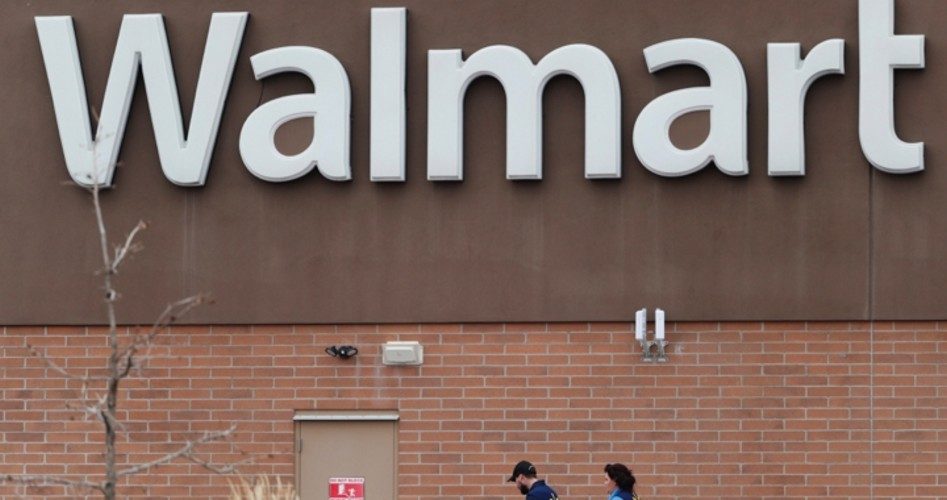
The world’s largest retailer, Walmart, announced on Thursday that it was voluntarily raising its minimum wage for new workers to $11 an hour starting next month. Included in the announcement were staged bonuses that will be paid to present workers based on their time with the company. Also included was a vast improvement in maternity benefits, with full-time hourly workers receiving 10 weeks of paid maternity leave and six weeks of paternal leave. Parents who adopt will get the same benefits plus a check from Walmart for $5,000 to help cover their adoption costs.
This is on top of the wage increases announced by the retailer in 2015 to be staged in over the next three years.
What’s notable is that this is taking place ahead of 18 state government mandates requiring increases in the minimum wage paid starting in 2018. Instead Walmart is responding to free market competition from several of its rivals, including Target and Costco, and its biggest competitor, Amazon.
It’s a measure of what a company such as Walmart can do with money it and its employees would otherwise be sending to Washington. Observers estimate that Walmart will save $2 billion in taxes thanks to the Trump tax reform bill, and the company is spreading it around. Walmart CEO Doug McMillon explained, “Tax reform gives us the opportunity to be more competitive globally and to accelerate plans for the U.S.”
Not only is the company raising the wage it pays to new hires, and passing out bonuses to its long-term employees, its enhancement of the maternity benefit package will put pressure on other employers seeking low-cost labor to raise their wages and improve their benefit packages as well.
The company is using part of its tax savings to raise the dividend it pays on its stock (thus benefiting the company’s present investors), but is also increasing its commitment to buy back some of its own stock (giving new investors the opportunity to enjoy those tax benefits indirectly through possible increases in the company’s stock price). It is using some of those savings to reduce its retail prices, benefitting its customers. It will also expand its customer service through additional self-serve centers for those who just want to purchase a few items and be on their way.
The announcement is clearly a response to moves by at least two of its direct competitors, Target and Costco. Last fall, Target raised its minimum wage to $11 an hour, while Costco starts its new hires at $13 an hour.
And then there’s Amazon, the beast that continues to threaten the very existence of retailers from grocery stores to clothing retailers. As Amazon increases its market share through offering lower prices over the Internet (and now providing two-day delivery even on Sundays), Walmart is working at enhancing customers’ in-store experience, something Amazon lacks. Not only is the company expanding its self-service centers, it is increasingly using robots to scan shelves so that out-of-stock items become rare for its customers.
The ripple effect of allowing taxpayers (individual and corporate) to keep more of what they earn is incalculable. Said Ben Bienvenu, an analyst at Stephens Inc., one of the country’s largest privately-owned investment banks: “We think this is a prudent use of tax reform proceeds [forgive for the moment that they aren’t “proceeds” but merely the allowing of people and companies to keep more of that they earn], as it reinforces the company’s commitment to improving in-store service levels and will pressure other retailers [i.e., Kroger, Home Depot, Walgreens, etc.] to invest more heavily into wages and prices.”
An Ivy League graduate and former investment advisor, Bob is a regular contributor to The New American magazine and blogs frequently at LightFromTheRight.com, primarily on economics and politics. He can be reached at [email protected].
Related article:



